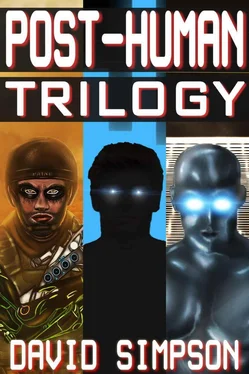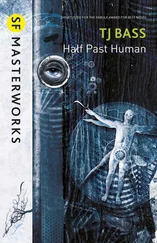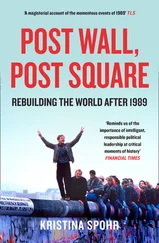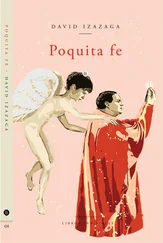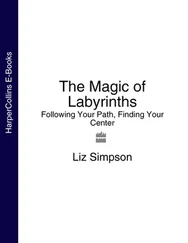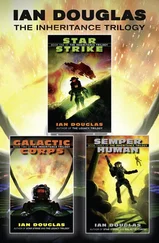“It’s insane,” was all his wife could reply, her eyes still lowered.
“Sammie, put the ultrasonic on.”
“My battery is too low,” she protested.
“It doesn’t matter. I have to go now anyway. Just put it on, Sammie.”
“Okay,” she replied, the earnestness in her husband’s voice compelling her to click the switch on the phone dock.
Immediately, there was a buzz on both ends of the conversation as the dock vibrated ever so lightly, but steadily on the table. Craig leaned in and cupped the back of his wife’s head, pulling her toward him and kissing her. It wasn’t a perfect kiss—there wasn’t a taste or any moistness to it—but the softness of the ultrasonic waves forming the shape of his wife’s lips as she kissed him was priceless. They kissed for nearly a minute, unwilling to end their physical contact before suddenly, without warning, Samantha’s battery gave out.
He leaned back in his hardback chair and stared into the empty place above the table where his wife’s visage had been only seconds earlier. “Bye, Sammie,” he whispered.
Craig walked across a sprawling hangar at Cannon Air Force Base in New Mexico, toward a waiting shuttle bus. As he neared the bus and began to raise his arm to salute the driver, a voice called to him from behind.
“Captain Emilson! Doc! The colonel wants to see you!”
Craig turned to the young airman and nodded. “Where?”
“I’ll take you to him.”
Minutes later, the young airman saluted the colonel as he delivered Craig to the door. Craig stepped in and saluted as well. The colonel waved the young airman away before motioning to Craig to come in. “At ease. Grab a seat, Doc.”
“Thank you, Colonel.” The colonel was sitting at a desk in a room so small that it appeared as though it may have been a converted supply closet; it was obvious that this was an impromptu conversation. The colonel was wearing augment glasses, reading something that was invisible to Craig.
“You wouldn’t believe the phone call I just got not five minutes ago,” the colonel began.
Craig listened intently but didn’t verbally respond; the colonel’s demeanor was deceptively casual, but it was a casualness that only went one way and was meant to demonstrate his power.
“None other than the chairman of the Joint Chiefs. And do you know who he wanted to talk to me about?”
Craig’s eyebrow rose inquisitively, but he remained silent.
“You! How about that? The Joint Chiefs are about to assemble in the situation room below Mount Weather, and they’re all talking about you. You wanna know why you’re the topic of conversation, Doc?”
“Yes, sir,” Craig replied.
“See if this rings a bell,” Colonel Paine replied as his eye went back to the projection from his aug glasses. He tilted his head forward to select something and then began reading: “We don’t support this war. We don’t support this ridiculous Luddite government. I’m sick of this. You shouldn’t be there. ”
“Holy—”
“Yeah,” Colonel Paine nodded.
“That wasn’t twenty minutes ago—”
“Intelligent algorithms. Our Luddite government likes to use them so we can identify any interesting tidbits that might come up in a conversation.”
Craig didn’t know how to respond. He wanted to deny the assertion that he thought the United States government was Luddite, but he couldn’t find the appropriate words. It didn’t matter—Colonel Paine was on a roll.
“Your wife is pretty damned accomplished. A PhD when she was only twenty-six, recruited by the top nanotech lab in the country for her post-doc. But you’re no slouch yourself, Doc. You made it into med school before the world ended, back when it still meant something. You two are a couple of smart ones, all right. I bet you even think you’re smarter than your commanding officer.”
Again, Craig desperately wanted to reply. He shifted in his chair, his mouth forming the shapes of words, but he didn’t have time to settle on which ones to say before Paine went on.
“Have you ever looked up my file, Doc? No? Shoot. You’d think you’d look up the file of your C.O. If you had looked me up, you’d know I’m a Rhodes Scholar.”
“That’s impressive, sir. I didn’t know that.” Finally…words .
“Back when it meant something,” the colonel repeated.
Craig nodded in understanding.
“So now that you know you’re not being addressed by a Luddite idiot, let me explain something to you.” Paine pulled out his sidearm and held the gun up for Craig to see. “They teach you anything about game theory in medical school, Doc?”
Craig shook his head.
“Then you’ve never heard of Nash’s equilibrium ?”
“No, sir.”
“Okay. Now we’re in business—there’s something I can teach you. In game theory, every scenario is broken down into a mathematical equation, and the entities in the game—whether they be individuals or whole countries—are assumed to be rational. You follow me so far, Doc?”
“Yes, sir.”
“Let me give you an example. Say you and I are gunfighters in the Old West. It’s high noon.” Paine wiggled the gun in his hand and looked at it, almost adoringly. “We’ve got a beef to settle, so there we are, in the middle of the town, dust blowing up around us. Somebody is going to die. That’s a given. Know why?”
“No, sir.”
“It’s simple, Doc. People who are rational always act in their own best interest . Let’s put some numbers to it. Let’s say you’re making up your mind about whether or not to draw your gun and shoot. You could just keep it holstered. If I keep mine holstered too, then our chance of survival is going to be 100 percent. Great, right? We could just walk away and call it a day.” Paine shook his head. “The only problem is, that’s a heck of a gamble, ain’t it? I mean, what if you decide to keep your gun holstered and then I pull out mine anyway?” Paine aimed his firearm directly at Craig’s forehead. “Your chances of survival just dropped dramatically. In fact, since I’m a dead shot, I’d have to say they’re damn near zero.” The colonel leaned back in his chair. “So, what are you going to do?”
“I’ve got to shoot,” Craig replied, swallowing as he did so.
Paine smiled. “That’s right, Doc. And why is that?”
“If I shoot, chances are 50/50 that I’ll survive. Beats zero, sir.”
“Well, you are a smart son of a gun.” Paine sat back in his chair and lowered his weapon. “Let’s change the equation a little bit, shall we? Let’s say that instead of guns, we’re holding nuclear weapons on each other. Instead of a fraction of a second for a bullet to hit our enemy, it will take several minutes. If you fire, the other player knows it and fires back. Both of you have a zero percent chance of survival. You know this scenario. It’s called mutually assured destruction, and it has held from the time Russia first got themselves a nuke back in 1948. No matter how afraid we got that nuclear war was going to happen tomorrow, in truth, we were always safe, because nobody wanted to start a war that would end with everyone dead.” Paine held his gun up and trained it on Craig’s forehead once again. This time there was something in the colonel’s eye that unnerved Craig. The killer inside emerged from his eyes as they fixed, hard and unmoving, upon Craig’s. “But let’s say someone—or something —found a way around mutually assured destruction. Let’s say Nash’s equilibrium went straight out the window. That happened once in history. The good ol‘ United States of America had a bomb and no one else did—and we used it…twice.” Paine’s tone became even colder as he spoke. “If I’m China, sitting here with an A.I. that can circumvent Nash’s equilibrium, and you’re the USA, sitting there holding yourself, what are you gonna do?”
Читать дальше
